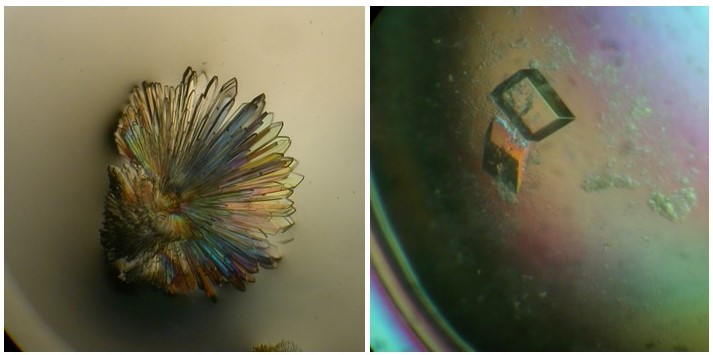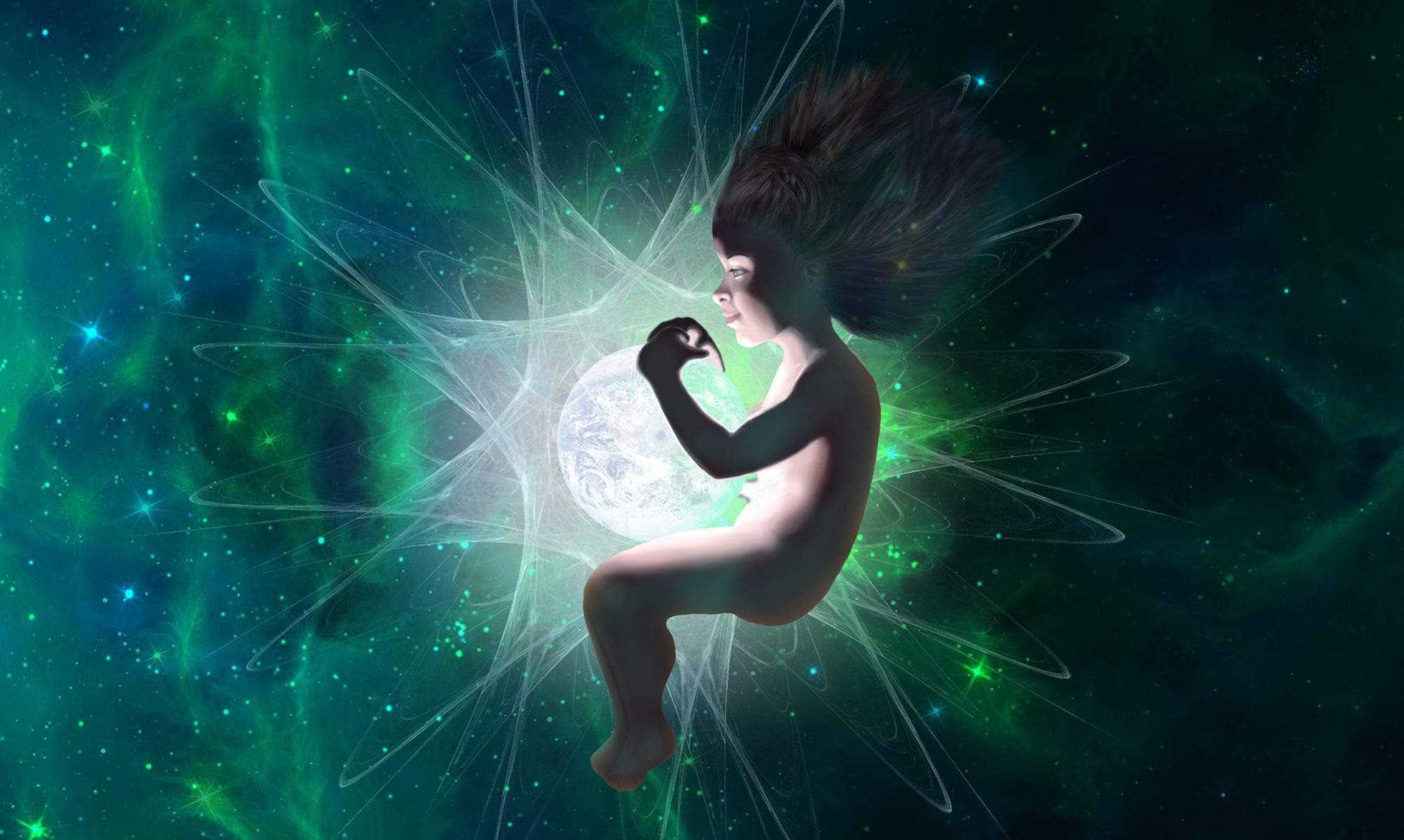Contemporary life has progressively moved us away from a sensory reality by replacing it by symbolic realities that make sense to the human community. In doing so, it locks us into the human comedy.
Symbols realize an association between elements of reality and a simplified way of representing them, which is understood by the human community.
It can be language, in oral and written form, mathematics, programming algorithms, and so on.
Symbols allow us to communicate with others, and other human beings are sources of attachment and survival. For this reason, symbols become so important that they come to supplant and atrophy sensory reality.
In other words, they are also sources of alienation. The child progressively moves away from his animal intelligence, his total sensory impregnation, for a symbolic reality that simplifies it in a sketch understood by the human species.
The importance of the verb in the building of hopes and fears of humanity that are religions, is an emblem of its power, particularly in religions based on writing that are the Abrahamic religions.
The Bible and the Torah teach us that everything begins with a divine word:
God says, “Let there be light!” And there was light.
The Bible, Old Testament, Genesis, 1:3
Saint John is more explicit. He assures :
In the beginning was the Word, and the Word was in God, and the Word was God.
The Bible, New Testament, St Jean’s Gospel, 1:1
The Qur’an tells us:
This is the Book about which there is no doubt, it is a guide for the those who fear God.
Qur’an, Al Baqarah (The cow) 2:2
In other words, the truth is contained in a book, in words.
However, language is a recent invention, it appeared with our species, that is to say, a few hundred thousand years ago. It is just a drop in the ocean of cosmic time. A drop in the history of nature itself, which is several hundred of millions years old, according to scientists.
The Tao-Te-Ching is more cautious. The word Tao means “the way”. The Tao Te Ching can be translated as “The Book of the Way and Virtue” or “The Book of the Righteous Way”.
The oldest fragments of this book have been dated to the 3rd century BCE, but some think that the philosophy it describes is much older.
The Tao Te Ching tells us:
The way that can be said is not the eternal way.
Tao Te Ching, chap. 1
What is the verb?
I propose the following definition: The verb is a set of symbols, each representing a redundant aspect of reality. The symbol is a graphic element or sound. Humanity uses these symbols to communicate with others and make predictions in order to take control of nature.
But the perfection of our symbols does not exist in reality. A perfect round does not exist, a cat never looks like another perfectly, one and one are two in reality if the two units are perfectly equal, which is never true. Reality is not in concepts. Reality is not in verb. Reality is impure, chaotic.
We can remember or delve into the past as archaeologists, or project ourselves into the future, we only get ideas. Reality is sensory. Even though our senses are limited, they offer a more reliable reality than our concepts, which are always too simple, too perfect.
Some people realize what they lose in the process of replacing sensory reality with a symbolic or virtual one, and they need a long practice of art, meditation, or music, to regain some of the bliss of the baby, wholly surrendered to her/his senses, as confident in the belly of nature as in the belly of her/his mother.
Science, which dissects the elements of nature by describing them with symbols, cuts us off from the marvels of reality, which, could be presented at the same time.
How many know that proteins, workers of our cells, which structure is schematized, like any molecule, by means of colored balls for the atoms, retained by sticks, can join to form a structure that folds several times on itself to reach a complex form adapted to its function, sometimes even micro-motors capable of moving a flagellum? And when these proteins are concentrated in pure state, they aggregate to form beautiful crystals reflecting light on a multitude of colors?

Source: Oregon students’ blog
To represent a cell, we represent a potato for the membrane, with a round for the nucleus, corrugated tubes for the mitochondria, sausages for the Golgi apparatus, sticks for the proteins, etc …
But when we observe unicellular organisms under a microscope, we are amazed by the beauty and complexity of these delicate buildings.
We trust science only, to the point of seeing ancient rituals as archaic superstitions. For example, in the French countryside, people used to make bouquets with ears of corn during the harvest festival, and hang them in the houses to bring prosperity. These rituals reveal as much as maintain an attachment to nature.
Makilam, author of “The Magical Life of Berber Women in Kabylia” describes the perception of cycles of nature for the Kabyle people of her grandmother’s time:
Today, the “modern man” can distance himself from the macrocosm and consider it from the outside. He can indeed, thanks to the logic of its graphic and rational thought, be abstracted and project himself outside the solar system. […] But the peoples of nature did not reason, they lived from themselves and referred to what they saw and perceived in all their senses, unlike the modern man, which has adopted the laws of rational science. In his reasoning, he dissociates from himself as a corporeal entity when he perceives reality only through thought. He thus sees only one aspect of his human nature since he projects himself mentally outside of the place and the precise moment in which he finds himself. As a result, the written calendar no longer reproduces sidereal time because it no longer reads in the sky. This new form of linear thinking involves the separation of the human person from the rest of the earthly nature from which it no longer depends for the organization of its material activities. On the level of consciousness, today’s human being perceives himself as separated from the life of the Great Nature and constantly lives the duality of his nature in relation to the cyclical overall life of his environment.
The child who has not yet learnt to speak is in a state of perception of reality not hidden behind concepts, which was ours at the dawn of humanity.
When we are small, we see quantities instead of counting them. We observe reality instead of conceiving it. A wooden table is not a wooden table for a baby. It is a flat mountain with above a universe of stripes and ellipses on different shades of brown.
A long time ago, while humanity was leaving the animal kingdom by acquiring an awareness of its inexorable mortality, when we used to paint animal life on the walls of caves and carved maternal bodies, before arts, technics, explorations, became reserved to a male elite, tens of thousands of years ago, we lived more on an immediate, sensory reality. We had no choice because we were expecting dangers and facing adversity. We did not learn so many concepts, of which prejudices are part. We were more instinctive. Our thoughts were more tinged with sensations. Only nature, much more beautiful and varied than today, offered itself to our senses.
Little by little, the verb and other mental projections have replaced the sensory reality, for the evolving humanity as for the child who learns to speak. Because the verb allows us to communicate with our fellow beings, and nothing is more important than them. Many of our nonverbal mental projections are also related to others. They are our guarantee of survival. But as these symbols cut us off from reality, other human beings becomes even more important because they becomes our main source of satisfaction.
Thus, reality gradually gave way to a predictable play, with oneself as the main actor, which scenes and roles are always the same, and the audience is only oneself. We have moved away from our animal condition by losing much of our sensory attachment. We have moved away from the flow of life that gave birth to us, the original womb, nature.
In the redundancy of our play, our spirit dies.
We are stuck like hens in a cage, in an office, an apartment, a car or other means of transport, tunnels of gray concrete and macadam. The gray of our walls is accompanied by that of our sounds, those of cars and city works … the noises of ourselves, murmured on TV, around us, and in an infernal cycle in our mind. The smells and flavors have become just as gray, sterilized by pesticides, fertilizers, hormones and other poisons, suffering of people, animals and nature.
In prehistory, although we sometimes had to suffer physically, our senses were on alert and we struggled to survive. Now, stuck in our cages, we peck in the cages next door.
When we lived in caves, we had to rely on each other. But now we are locked in the sinister comedy of disguised people, and it is this disguise that determines the comfort provided by others.
We are insane. We have lost the meaning of our life. We have lost our instincts.
